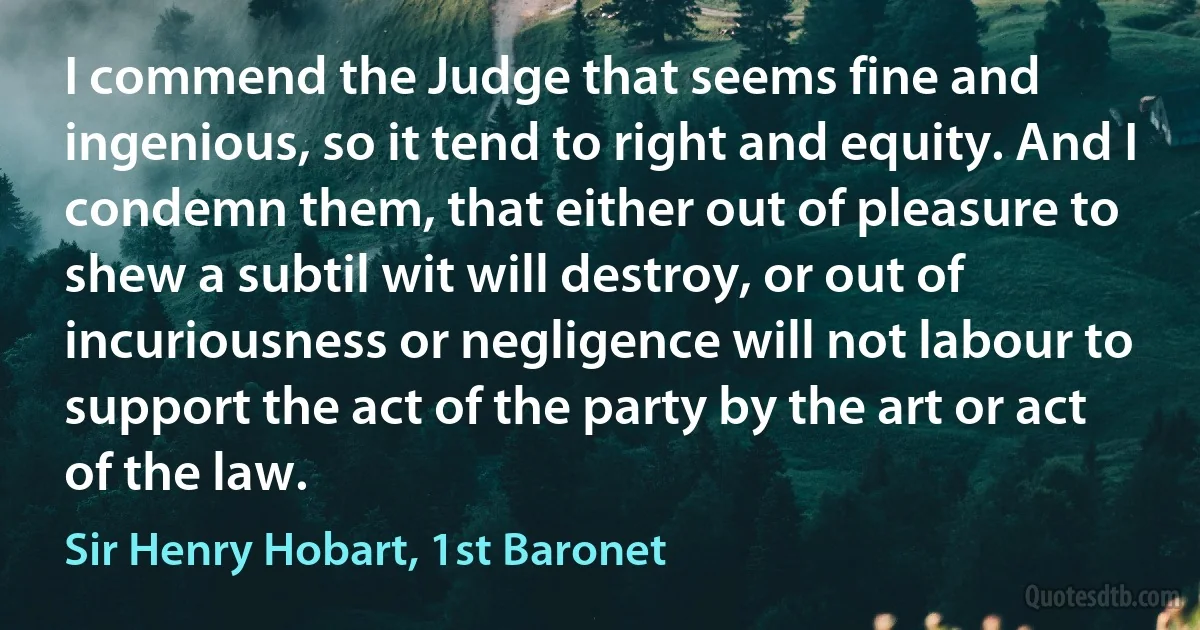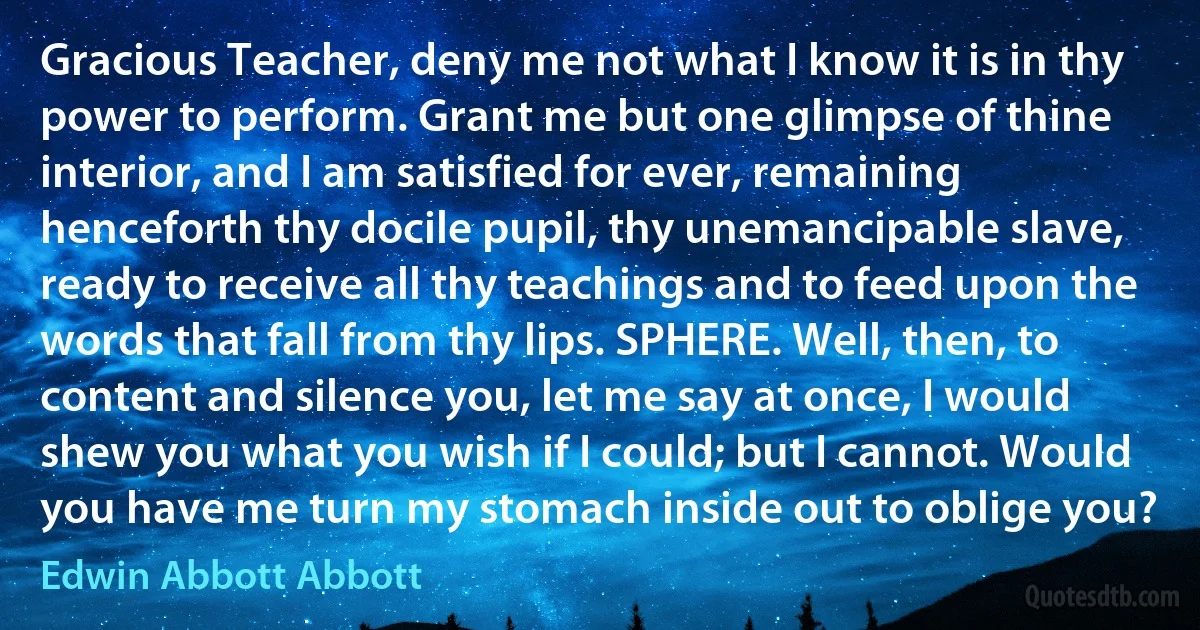Shew Quotes - page 3
The foregoing suggestions are not designed to inculcate an opinion that manufacturing industry is more productive than that of Agriculture. They are intended rather to shew that the reverse of this proposition is not ascertained; that the general arguments which are brought to establish it are not satisfactory; and consequently that a supposition of the superior productiveness of Tillage ought to be no obstacle to listening to any substantial inducements to the encouragement of manufactures.

Alexander Hamilton
My father was as proud of his eloquence as MARCUS TULLIUS CICERO could be for his life, and and for aught I am convinced of to the contrary at present, with as much reason: it was indeed his strength - and his weakness, too. - His strength - for he was by nature eloquent - and his weakness - for he was hourly a dupe to it; and provided an occasion in life would but permit him to shew his talents, or say either a wise thing, a witty, or a shrewd one - (bating the case of a systematic misfortune)- he had all he wanted.- A blessing which tied up my father's tongue, and a misfortune which let it loose with a good grace, were pretty equal: sometimes, indeed, the misfortune was the better of the two; for instance, where the pleasure of the harangue was as ten, and the pain of the misfortune was as five - my father gained half in half, and consequently was as well again off, as if it had never befallen him.

Laurence Sterne
And then if any man shall say to you, Lo, here is Christ; or, lo, he is there; believe him not: For false Christs and false prophets shall rise, and shall shew signs and wonders, to seduce, if it were possible, even the elect. But take ye heed: behold, I have foretold you all things.
But in those days, after that tribulation, the sun shall be darkened, and the moon shall not give her light, And the stars of heaven shall fall, and the powers that are in heaven shall be shaken.
And then shall they see the Son of man coming in the clouds with great power and glory. And then shall he send his angels, and shall gather together his elect from the four winds, from the uttermost part of the earth to the uttermost part of heaven.

Jesus Christ
Among many reasons which determine me to prefer monarchy to every form of government, this is a principal one. When monarchy is the essential form, it may be more easily and more usefully tempered with aristocracy or democracy, or both, than either of them, when they are the essential forms, can be tempered with monarchy. It seems to me, that the introduction of a real permanent monarchical power, or any thing more than the pageantry of it, into either of these, must destroy them and extinguish them, as a great light extinguishes a less. Where it may easily be shewn, and the true form of our government will demonstrate, without seeking any other example, that very considerable aristocratical and democratical powers may be grafted on a monarchical stock, without diminishing the lustre, or restraining the power and authority of the prince, enough to alter in any degree the essential form.

Henry St John, 1st Viscount Bolingbroke
After it hath been seen how the obstinate and the ignorant of evil disposition are accustomed to dispute, it will further be shewn how disputes are wont to conclude; although others are so wary that without losing their composure, but with a sneer, a smile, a certain discreet malice, that which they have not succeeded in proving by argument - nor indeed can it be understood by themselves - nevertheless by these tricks of courteous disdain they pretend to have proven, endeavouring not only to conceal their own patently obvious ignorance but to cast it on to the back of their adversary. For they dispute not in order to find or even to seek Truth, but for victory, and to appear the more learned and strenuous upholders of a contrary opinion. Such persons should be avoided by all who have not a good breastplate of patience.

Giordano Bruno
There cannot be a greater rudeness, than to interrupt another in the current of his discourse... To which, if there be added, as is usual, a correcting of any mistake, or a contradiction of what has been said, it is a mark of yet greater pride and self-conceitedness, when we thus intrude our selves for teachers, and take upon us either to set another right in his story, or shew the mistakes of his judgement.

John Locke


